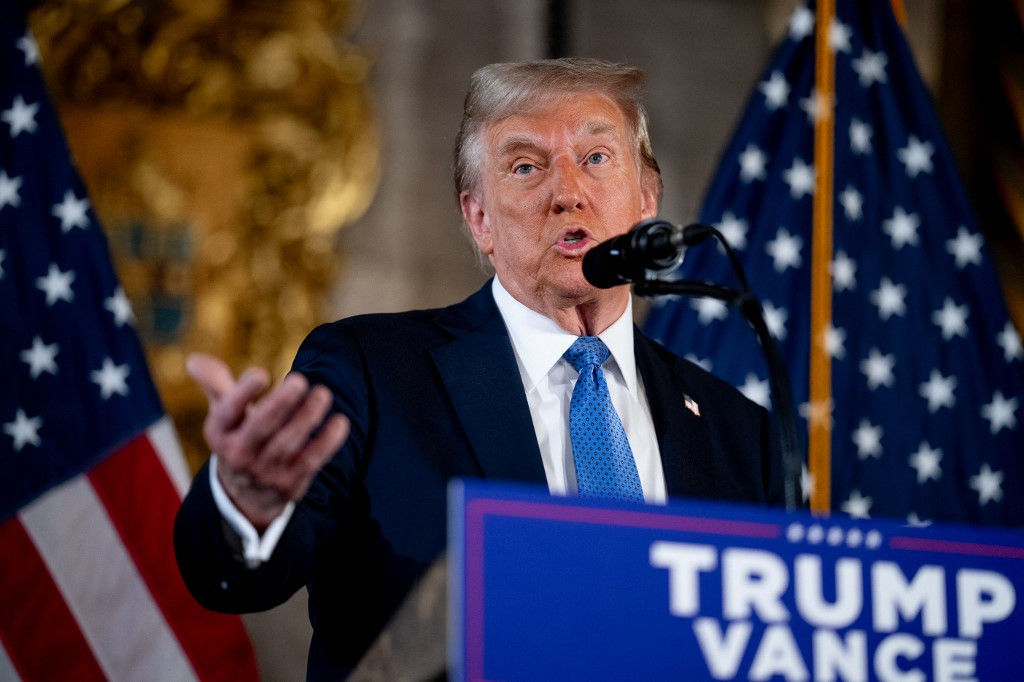The conclusion of a high-profile investigation often leaves a lasting impact on the political landscape. Special counsel probes are rare, but when they occur, they have the potential to shape public perception and the future of political figures. In one of the most anticipated conclusions in recent U.S. political history, the final report from the Special Counsel investigating former President Donald Trump has ignited intense debate. The report suggests that, had Trump not been elected as president, he would have been convicted for various actions and decisions during his tenure in office. This provocative claim has significant implications for the legal and political future of one of the most polarizing figures in recent history.
In this article, we will break down the key findings of the Special Counsel’s final report, analyze its implications on Trump’s legal and political future, and discuss the broader consequences for American governance and accountability.
Context: The Special Counsel Investigation
Special counsels are independent prosecutors appointed to investigate sensitive matters, often involving high-ranking political figures, without the usual oversight of the Department of Justice (DOJ). Their purpose is to ensure impartiality in cases where there may be a perceived conflict of interest. In this case, the Special Counsel investigation was launched to examine a range of actions taken by Donald Trump before, during, and after his presidency, particularly surrounding the January 6th Capitol riot, attempts to influence the outcome of the 2020 election, and other related legal and ethical concerns.
The investigation lasted for several years and included extensive testimony, document collection, and an examination of Trump’s role in several high-profile incidents. The final report, which was released to the public, outlines a series of conclusions that have prompted a range of reactions from legal experts, politicians, and the public.
Key Findings: Trump’s Actions and Legal Implications
One of the most significant revelations in the Special Counsel’s final report is the claim that, had Trump not been elected president, he would have faced criminal charges for his role in various events. The report cites numerous instances where Trump’s actions could be considered violations of the law, especially regarding his involvement in efforts to alter the results of the 2020 election.
1. The January 6th Capitol Attack
The Special Counsel’s report devotes considerable attention to Trump’s actions leading up to and following the January 6th Capitol riot. According to the investigation, Trump played a key role in inciting the violence that ensued that day. The report suggests that, had Trump not been shielded by presidential immunity, the evidence would have supported criminal charges for his attempts to disrupt the certification of the 2020 election results.
While Trump consistently denied any direct responsibility for the actions of the rioters, the Special Counsel points to his inflammatory rhetoric in the days leading up to January 6th, as well as his efforts to convince state officials and lawmakers to overturn the results of the election. The investigation found that Trump’s words and actions were a key catalyst in the events that unfolded, leading to the storming of the U.S. Capitol and the deaths and injuries of several individuals.
2. The Call to Georgia Secretary of State
Another aspect of the investigation focused on Trump’s phone call to Georgia Secretary of State Brad Raffensperger in early January 2021. During the call, Trump pressured Raffensperger to “find” enough votes to overturn the results of the 2020 election in Georgia, a state that Joe Biden had won. The Special Counsel’s report suggests that this call was an attempt to interfere with the election process, potentially constituting criminal activity.
If Trump had not been elected president, the report concludes, he would likely have faced charges related to election interference. The call, according to legal experts cited in the report, could be seen as an effort to coerce an election official into violating their legal duty and tampering with the results of a legitimate election.
3. The Handling of Classified Documents
The investigation also scrutinized Trump’s handling of classified documents after leaving office. Several key incidents, including the discovery of classified documents at his Mar-a-Lago estate, raised significant legal questions. The Special Counsel’s final report concluded that Trump’s actions, particularly the refusal to return the documents after multiple requests from the National Archives, could have led to charges of obstruction of justice and mishandling classified materials.
Had Trump not been president, the report asserts, he would have faced prosecution for these offenses. The handling of classified documents is a serious offense under federal law, and the investigation revealed that Trump’s actions in this regard were inconsistent with his duties as president. While presidential privilege allows for certain exceptions, the Special Counsel’s report found no valid justification for Trump’s continued possession of classified materials after he left office.
Political and Legal Consequences
The findings of the Special Counsel’s investigation have far-reaching implications for both Trump and the broader political system. If Trump were not shielded by the privileges associated with his office, the evidence outlined in the report could have resulted in significant criminal charges. However, because of his status as president at the time of the alleged offenses, Trump was afforded certain protections that would likely have shielded him from prosecution during his time in office.
This raises several important questions about the limits of presidential power and the ability to hold political leaders accountable for actions taken while in office. The fact that the Special Counsel’s report concludes that Trump would have been convicted if he hadn’t been elected is a significant statement about the broader issue of accountability within the U.S. political system.
While Trump remains a polarizing figure, his legal challenges have had significant political consequences. The final report adds fuel to the debate over whether Trump’s actions should be subject to legal scrutiny, and whether the actions of a sitting president should be afforded greater leniency than those of ordinary citizens.
Trump’s Legal Future: What Comes Next?
The final report from the Special Counsel is just one chapter in the ongoing saga of Donald Trump’s legal battles. While the report may not lead to immediate criminal charges—due in part to the protections afforded to a sitting president—Trump’s post-presidency period has already seen several ongoing investigations. The possibility of future legal consequences remains high, as multiple cases are still being pursued by federal and state authorities.
For Trump, the release of the final report may serve as a wake-up call about the ongoing legal challenges he faces. While the report suggests that he was shielded from conviction due to his presidency, it also lays the groundwork for potential charges down the road. Whether these challenges will result in criminal convictions or not remains to be seen, but the Special Counsel’s findings provide further evidence of the complex legal web Trump must navigate.
Public Perception and the 2024 Election
The release of the Special Counsel’s final report also has implications for the political landscape. As Trump continues to be a key figure in the Republican Party and is rumored to be considering a run in the 2024 election, the findings of the investigation will likely influence public opinion. Supporters of Trump may dismiss the findings, while critics will likely use the report to argue for greater accountability and transparency.
In any case, the report adds further complexity to the political debate surrounding Trump’s future, both legally and politically. The nation is left to grapple with the implications of this investigation and the question of whether it will affect Trump’s chances in future elections.
Conclusion
The Special Counsel’s final report is a momentous development in the ongoing legal and political saga surrounding Donald Trump. The investigation’s findings suggest that, had Trump not been elected president, he would have faced criminal charges for actions taken during his time in office. The revelations contained in the report not only shed light on Trump’s conduct during critical moments in U.S. history but also raise important questions about the balance of power, accountability, and the limits of presidential immunity.
As the country moves forward, the implications of the report will continue to shape the political conversation, particularly as Trump navigates ongoing legal challenges and considers a potential return to politics. While the final report provides a clearer picture of the possible consequences of Trump’s actions, the legal, political, and societal ramifications of this investigation are far from over.



